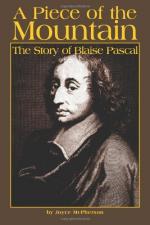|
This section contains 494 words (approx. 2 pages at 300 words per page) |

|
French Mathematician and Philosopher 1623–1662
 Blaise Pascal's work on binomial coefficients would lead Sir Isaac Newton (1643–1727) to his discovery of the general binomial theorem for fractional and negative powers.
Blaise Pascal's work on binomial coefficients would lead Sir Isaac Newton (1643–1727) to his discovery of the general binomial theorem for fractional and negative powers.
Most students in a mathematics class at some point wonder why. Not "Why does this process or theory work?" but rather "Why do I have to learn this?" Blaise Pascal, a mathematician during the mid-seventeenth century, is certainly one of the people to "blame." Yet Pascal made many contributions to mathematics and society as a whole.
Education for children of the 1600s was very different from modern education. There had been a time during Pascal's youth when his father had forbidden him to study mathematics and physics. Pascal's father even went so far as to lock up all the books to keep them away from his son. It seemed as though his father was embarrassed or worried that...
|
This section contains 494 words (approx. 2 pages at 300 words per page) |

|


